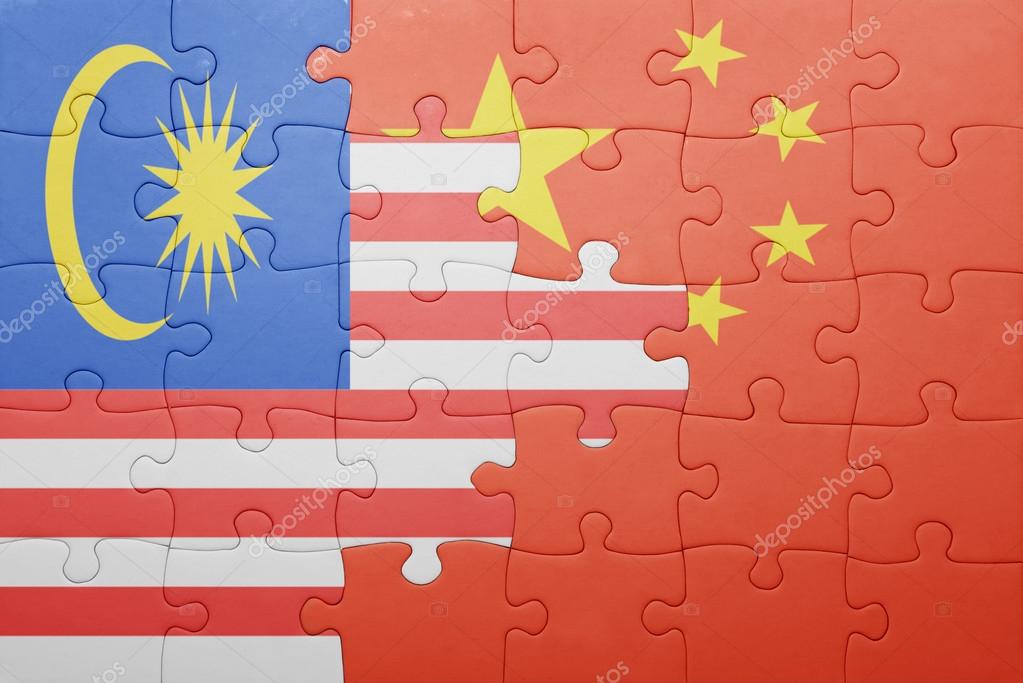Blog
Malaysia and China true challenge – MH370, not Projects
There has been a news being forwarded within the Malaysian Whatsapp groups, entitled “China to take over Zambia’s international Airport for debt repayment”.
According to the news that was reported on 8 September, 2018 in African Stand (an online Africa news site that brings Latest African Breaking News, established in 2018 for the purpose of presenting balanced coverage of events, and promoting the best interests of Africa), China is now proposing to take over the Kenneth Kaunda International Airport should Zambia Government fail to pay back its huge foreign debt on time. The issue of whether Zambia possess the required economic muscle to repay that debt is in contention considering the amount involved.
Cancellation of China-backed Projects
Before the incident, Malaysian Prime Minister Mahathir Mohamad has criticized Chinese ventures in his home country for being too expensive and has suspended three China-backed projects worth around $22 billion that were signed under the previous administration. Dr Mahathir has suspended billion-dollar infrastructure projects backed by Chinese state companies, such as the East Coast Rail Link (ECRL), three China-backed projects worth around $22 billion — two gas pipelines and a rail link, and sought to renegotiate terms of the contracts if he can’t cancel them entirely for being too costly.
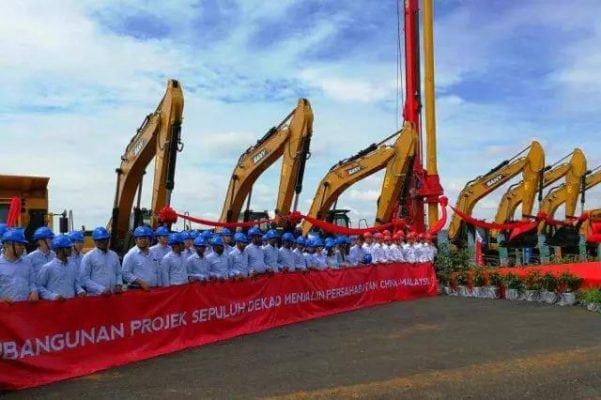
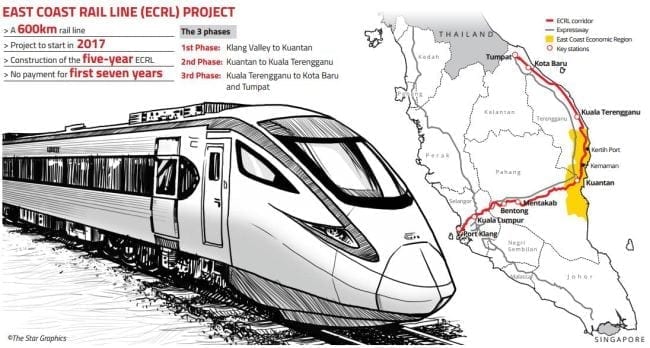
The MYR 55 billion (USD 11.7 billion) railway project contracted by China Communications Construction is the largest project conducted by Chinese companies overseas and also one of the most prominent ones under the Belt and Road initiative. (Aug 2017)
The ECRL that connects major cities along east coast with the more developed west coast will boost the trade, logistics, import & export, tourism and other industries in the local market. It’s said that Malaysia is planning to make the ECRL part of the Trans-Asian Railway and link it with the railways in Thailand, building a super-transport line from China’s Southwest to Malaysia.
In fact, Mahathir took his predecessor Najib Razak to task over the issue, accusing the scandal-ridden politician of “selling off” the country in exchange for Beijing’s help in settling debts linked to troubled state fund 1MDB. Many see Dr Mahathir as attempting to increase Malaysia’s bargaining power in the negotiation for compensation for the cancelled projects. On social media, there are also suggestions that Dr Mahathir is targeting his predecessor as most China-linked projects were launched during Najib’s rule.
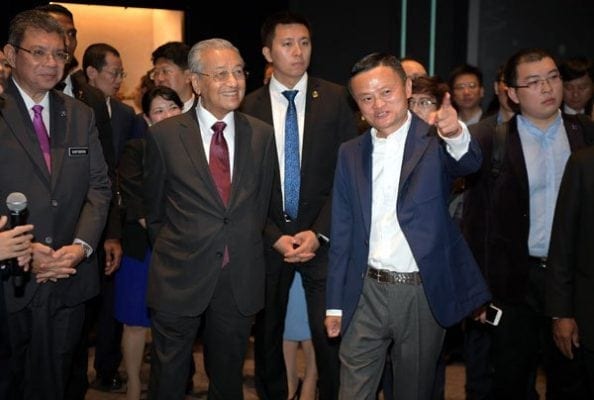
Malaysia has destroyed good tier with China
Tan Yew Sing, president of the Malaysia-China Chamber of Commerce, offered an optimistic assessment about Beijing and Kuala Lumpur ultimately reaching an agreement. “In Malaysia, the majority of people are very confident that an amicable solution will arrive,” said Tan, who is part of a business group accompanying Mahathir on the trip.”
In an interview with Chinese state-controlled news agency Xinhua on Thursday, Mahathir said he was still open to working with China, as long as it benefited Malaysia’s economy. Foreign investment that brought in capital, technology and factories to produce goods for either domestic use or export, is welcomed, he told Xinhua.
The future of foreign direct investment (FDI) from China is now seen as unpredictable – at least for the next three to five years – under the new government of Tun Dr Mahathir, according to Datuk Keith Li, president of China Entrepreneurs Association in Malaysia. “Malaysia must remember that by targeting Chinese investors in an unreasonable way, this will scare away FDI from not only China, but also other countries.” As the result, Dr Mahathir’s comments have caught the attention of China’s Global Times, the mouthpiece of the Communist Party of China. In an editorial on Aug 28, it said: “Many words of Kuala Lumpur can spread to China via the Internet, causing different reactions. How the Chinese public sees China-Malaysia cooperation is by no means inconsequential to Malaysia’s interests.”
It noted that “while Dr Mahathir advocates pursuing a policy of expanding friendly cooperation with China… when it comes to specific China-funded projects, his remarks gave rise to confusion. Like this time, it is startling to equate the controversy surrounding a factory wall with state sovereignty”.
China is upset with Malaysia over the Pakatan Harapan government’s decision to cancel the East Coast Rail Link (ECRL), former prime minister Najib Razak said. He said Beijing was angry as the project was a key component to China’s Belt and Road Initiative which Chinese president Xi Jinping wanted as his legacy.
Chinese premier Li Keqiang was not at all pleased with Mahathir’s “colonialism” slur and made it clear that terms associated with the ECRL and gas pipeline projects were not up for review.
A well-placed source informed The Third Force that Mahathir went on to seek a whopping US40 billion loan from Chinese president Xi Jinping on grounds that Malaysia would face trouble paying compensations should the Chinese-backed projects be cancelled.
The First Incident – MH370
Some of the Malaysian, especially the Malays are unhappy to China due to Tun Mahathir’s stand, when Malaysia failed to get financial aid from China. People think the China is playing dirty to Malaysia where their investment and “put their legs” into the Malaysia politic. However, people always forgetfulness, Malaysian have forgotten that China did not ever angry with MH370, that was really hurt the Chinese millions of hearts. Chinese relatives were frustrated by MH370 report, as covered in Free Malaysia Today, dated 3 August 2018.

After many years, the hunt for missing Malaysia Airlines flight MH370 still has not been found. Among the 239 people on board the plane, which disappeared on 8 March 2014, was a party of Chinese calligraphers, a couple returning to their young sons after a beach getaway and a construction worker making his first trip home in a year.

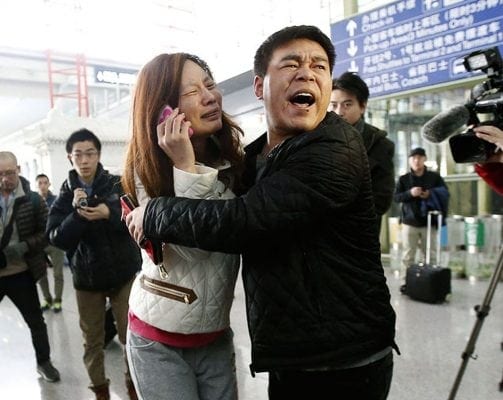
There were 14 nationalities represented in the 227 passengers and 12 crew travelling from Kuala Lumpur to Beijing. The majority – 153 people – were Chinese.
Chinese relatives met with members of the investigation team in a marathon six-and-a-half-hour session which saw many walking out in frustration while clutching hefty stacks of the report and its appendices, together totalling some 1,500 pages. “They’ve given us all these documents but it’s all in English. It’s very difficult for us,” said Gao Xianying, whose daughter, son-in-law and granddaughter were on the plane.
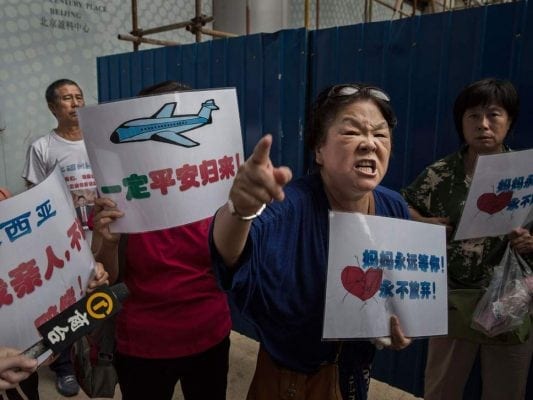
Others were left disappointed that no new information was offered. “I’m not satisfied because they’re shrugging off responsibility and hiding the truth,” said Wen Wancheng, whose son was on the flight. “The team is unable to determine the real cause for the disappearance of MH370,” concluded the largely technical document report. This is the reality we Malaysian must face and don’t simply forward something that is not true.
Malaysian Must Fair in Open Trade
So, please stop blame on China when Chinese put huge investment in Malaysia. Malaysia has accumulatively invested US$7.58 billion in China, surpassing China’s investment in Malaysia. Some more, China is not the only FDI to Malaysia, there are also USA, Japan, India and many. Japan has more foreign direct investments (FDI) in Malaysia than China but no one is saying that the country’s sovereignty is being sold to Japan, in early of 2018. Back to year 2014, foreign direct investment (FDI) to Malaysia mainly originated from Singapore, Japan, the Netherlands, the US and Norway, which amounted to RM257.7 billion (US$58 billion), or 55.1 per cent of total FDI. China, however, has been Malaysia’s largest trading partner since 2009, and is both the largest market for Malaysian exports and the largest importer to Malaysia. Total trade between the two countries in 2014 reached RM207.85 billion.
Most importantly, Malaysia must decide how to position itself in the regional economic arena given the existing competing influences. More specifically, Malaysia must take into account the roles that China and India will carve for themselves in the region. Alternatively, Malaysia could tilt toward Japan since Japan has its own economic interests in Malaysia. But this also may not be to Malaysia’s best interest, as Japan will not allow Malaysia to take advantage of the opportunities that will arise in China. Treasury Secretary-General Tan Sri Dr Mohd Irwan Serigar Abdullah revealed that and refuted claims that Malaysia was overdependent on China, he said, the country’s net FDI inflow of RM39.2 billion last year included investments in various sectors from India, Germany, Japan and Singapore, among others. “Foreign investors choose to invest in Malaysia as they prefer to conduct their businesses in countries that are peaceful and calm,” he said in his message to almost 1,000 federal civil servants in Sarawak at the Ministry of Finance programme, in April.
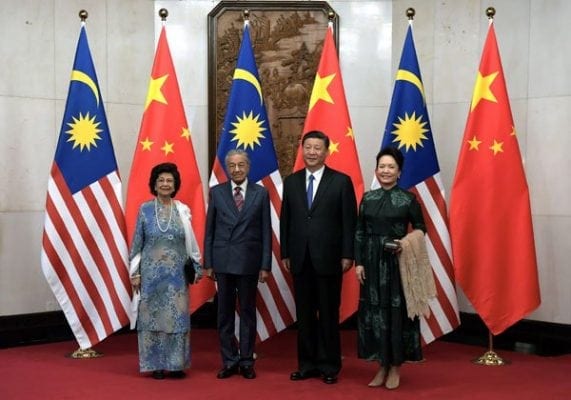
In August 2018, Dr Mahathir insisted it still welcomed companies willing to do deals that help employ the country’s workers and improve its efficiency without harming local manufacturers in industries like steel production. Malaysia wants to learn from Chinese manufacturers, the Prime Minister said, as he encouraged Chinese businesses to invest in his country. This is the real government view in relation with Malaysia-China, thus the people of Malaysia must stop to distribute negative message on their social media and pay responsible.
